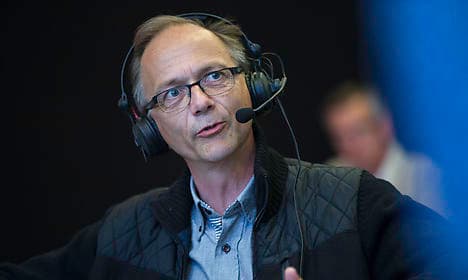The Local’s party guide: Christian Democrats

Keep confusing the Danish political parties with their Borgen equivalents? The Local's political party guide separates fact from fiction. This segment: the Christian Democrats.
Leader: Stig Grenov
Synopsis
The Christian Democrats (Kristendemokraterne)party was founded in 1970 and has been in and out of parliament ever since. In its early years, the party was a harsh critic of what they viewed as the moral decay of Danish society, but have since toned down the rhetoric to focus more on issues concerning family life.
Despite the name, the Christian Democrats do not refer to themselves as a Christian party, but rather a party with an ideology based on Christian values. Nevertheless, a number of members left the party in 2008 as they felt that it relied too much on religious arguments for their political work and opinions. They remain outspoken critics of abortion, homosexuality, gay adoption, divorce and pornography, all of which are views that have alienated them from the young voters in particular.
Party leader Stig Grenov has argued passionately for more help to Danish families during his participation in public debates, but many voters still fail to recognise him or other party candidates. The Christian Democrats did not make it past the two percent vote barrier to secure entry to parliament in the 2011 election, and are unlikely to do so in the upcoming one – meaning that those votes to the blue bloc will essentially not be counted.
Core campaign issues
The party has argued that families require an improved societal framework for raising healthy, well-adjusted children, which includes mandatory counselling for couples headed for divorce. They have also campaigned on revoking women’s right to abortion and a more ethical health care system. Finally, combating poverty - both in Denmark and abroad - should be given more attention by instituting a national poverty line and raising the percentage of the GDP spent on foreign aid from the approximately 0.85 percent it is today to 1.0 percent.
Current representation in parliament: 0 mandates (0.8% of the vote)
Expected after this election (as per a June 14th Epinion survey): 0 mandates (0.8% of the vote)
Comments
See Also
Leader: Stig Grenov
Synopsis
The Christian Democrats (Kristendemokraterne)party was founded in 1970 and has been in and out of parliament ever since. In its early years, the party was a harsh critic of what they viewed as the moral decay of Danish society, but have since toned down the rhetoric to focus more on issues concerning family life.
Despite the name, the Christian Democrats do not refer to themselves as a Christian party, but rather a party with an ideology based on Christian values. Nevertheless, a number of members left the party in 2008 as they felt that it relied too much on religious arguments for their political work and opinions. They remain outspoken critics of abortion, homosexuality, gay adoption, divorce and pornography, all of which are views that have alienated them from the young voters in particular.
Party leader Stig Grenov has argued passionately for more help to Danish families during his participation in public debates, but many voters still fail to recognise him or other party candidates. The Christian Democrats did not make it past the two percent vote barrier to secure entry to parliament in the 2011 election, and are unlikely to do so in the upcoming one – meaning that those votes to the blue bloc will essentially not be counted.
Core campaign issues
The party has argued that families require an improved societal framework for raising healthy, well-adjusted children, which includes mandatory counselling for couples headed for divorce. They have also campaigned on revoking women’s right to abortion and a more ethical health care system. Finally, combating poverty - both in Denmark and abroad - should be given more attention by instituting a national poverty line and raising the percentage of the GDP spent on foreign aid from the approximately 0.85 percent it is today to 1.0 percent.
Current representation in parliament: 0 mandates (0.8% of the vote)
Expected after this election (as per a June 14th Epinion survey): 0 mandates (0.8% of the vote)
Join the conversation in our comments section below. Share your own views and experience and if you have a question or suggestion for our journalists then email us at [email protected].
Please keep comments civil, constructive and on topic – and make sure to read our terms of use before getting involved.
Please log in here to leave a comment.